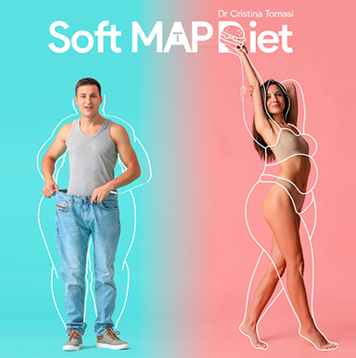Low-Carb
What’s it all about?
When the diet is unbalanced — especially in favor of sugar and refined carbs — the body reacts, often with subtle signals: fatigue after meals, sudden cravings, energy crashes, recurring inflammation, or difficulty managing weight.
Science has started to take a closer look at the connection between returning to a more “ancestral” way of eating and the health benefits it can bring.

Low-carb means choosing a varied, balanced diet made of simple, whole, unprocessed foods.
Get my Salubretto now - for free!
Why
Low-Carb
A scientific review published on PubMed (PubMed ID: 28193501) shows that a low-carbohydrate diet — rich in quality proteins and healthy fats — can significantly improve blood sugar control, reduce inflammation, and support a healthier body composition.
But low-carb isn’t just about weight loss. At its core, it’s about restoring a more stable metabolic balance — one that aligns with our evolutionary roots and avoids the blood sugar highs and crashes typical of high-sugar diets.
In most cases, a thoughtful and strategic reduction in carbohydrate intake — especially refined carbs — offers a real opportunity to improve long-term health. That’s why the low-carb lifestyle can be one of the smartest, most effective ways to achieve and maintain both physical and emotional well-being.
Low-carb means embracing a varied, complete diet made of simple, unprocessed foods — naturally rich in the nutrients our bodies need. It’s about respecting seasonality and local traditions, while minimizing overall carbohydrate intake, especially from refined sources.
Numerous studies have linked the consumption of ultra-processed foods to a range of health issues, including obesity, cardiovascular disease, type 2 diabetes, and certain types of cancer. These foods are often high in calories, sugars, trans fats, additives, colorings, flavorings, sweeteners, and sodium — yet low in essential nutrients like fiber, protein, healthy fats, vitamins, and minerals.
Discover my Challenges
Challenges are true 21-day transformation journeys, designed to guide you step by step toward a deeper, more conscious lifestyle change.
It’s not just another diet plan: every Challenge includes a low-carb meal plan, daily physical exercises, live webinar sessions, in-depth themed PDFs, and daily emails to guide and motivate you throughout the process.
But the real heart of the Challenge is what you learn. You’ll learn how to eat properly in any situation — without feeling out of place or unsure. You’ll learn how to move every day in a sustainable way, how to respect your circadian rhythms, and what fasting really is — and how to practice it safely and effectively. You’ll discover the importance of macronutrients, how to read your body’s signals, how to protect yourself from chronic inflammation, and how to build long-lasting well-being starting from within.
Challenges are immersive experiences that help you become an active protagonist of your health — with practical tools, scientific knowledge, and a structured method to create lasting habits. It’s not just about losing weight: it’s about regaining energy, mental clarity, hormonal balance, and self-confidence.
Want to stay up to date on upcoming Challenges and receive exclusive discounts and content? Sign up now — there's a gift waiting for you!





